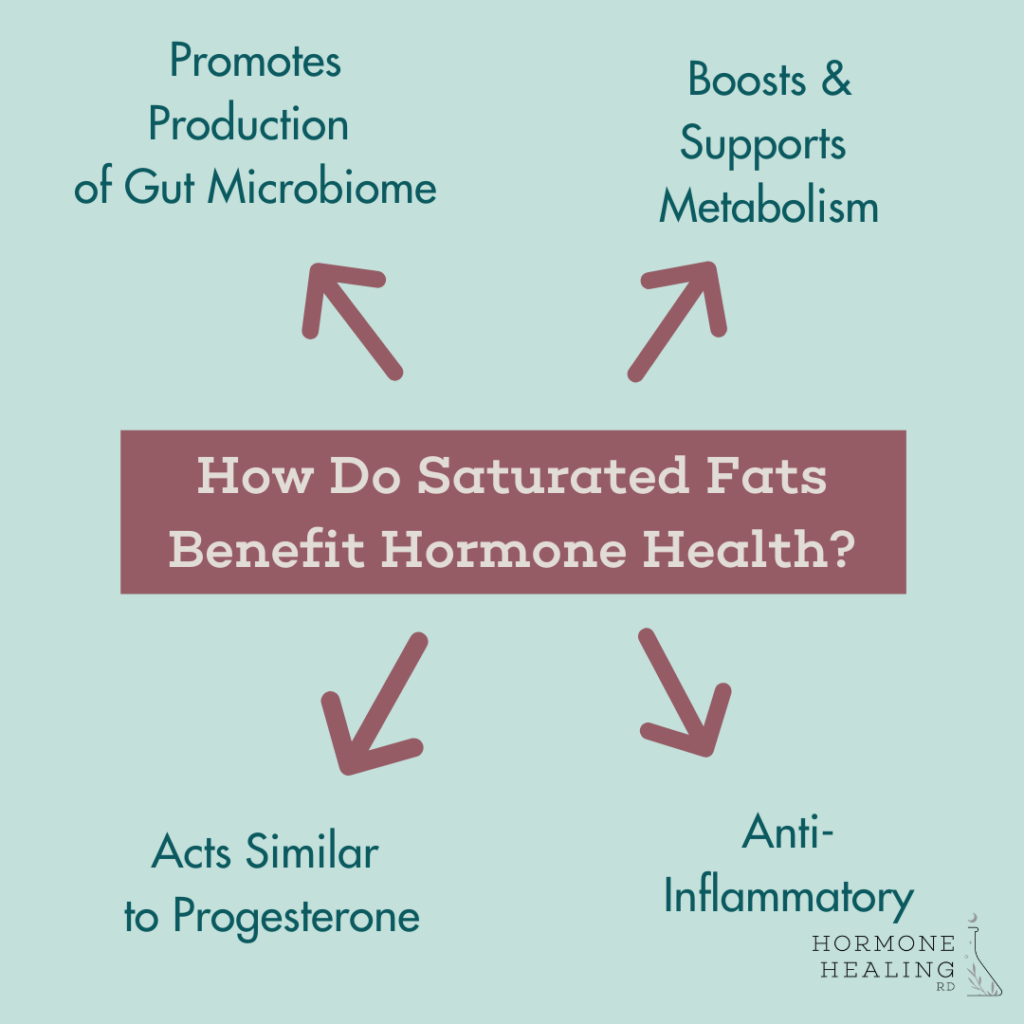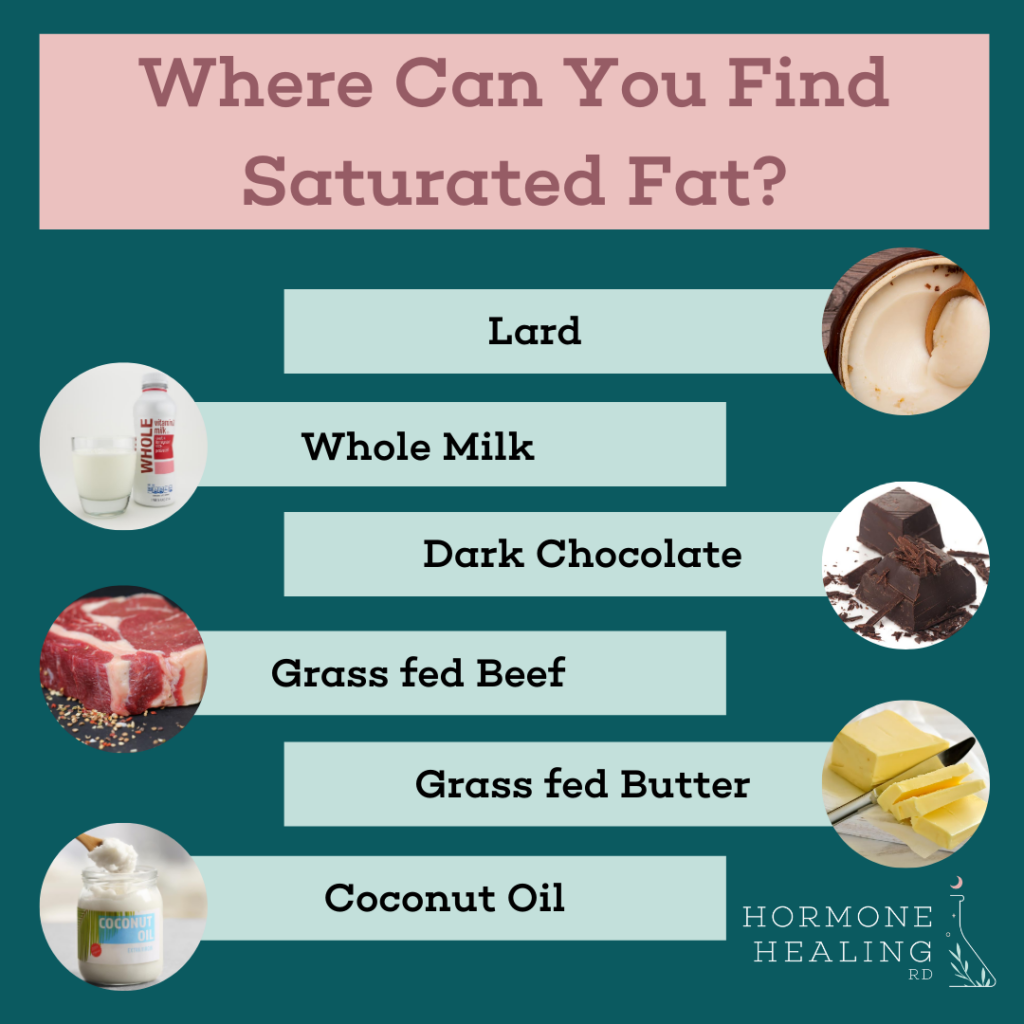For so long, we have been warned against consuming saturated fats. Are they really the villain they are made out to be when it comes to our health? You might be surprised to hear this, but no, they are not. In fact, saturated fats are very stable. Think about it–they are solid at room temperature and very important for cell structure, hormone production, brain health, and so much more. Our bodies actually rely on saturated fats for many functions.
What roles do saturated fats play?
In general, fat is used to provide energy, keep foods from becoming dry, and a cooking agent. Ever wondered why Southern cooking tastes so good? It is because of the fat that is used during cooking, most of which is usually saturated fat. Aside from adding flavor, saturated fats have biological roles as well.
In his article titled Saturated Fat Does A Body Good, Christopher Masterjohn explains that saturated fat is necessary for cellular structure and energy within the body. He details how specific saturated fatty acids act as an anchor and secure many proteins to the cellular membrane. The saturated fats keep the proteins from floating away. He further explains that evidence suggests our bodies do not make enough saturated fat from carbohydrates; therefore, they should be included in our diet. The fat our bodies use for energy is transferred to systems that control the antioxidant defense, detoxification, and nutrient recycling, including folate and vitamin K.
Why are saturated fats “bad” again?
Historically, it has been believed that saturated fats are a bad thing. High cholesterol and fatty liver disease have been blamed on the overconsumption of saturated fats. Dietary guidelines have advised us to reduce our intake of saturated fat to improve cardiovascular health. But recently, multiple research studies have questioned this theory after finding no significant association between saturated fat intake and increased risk of heart disease. Another study concluded that a diet high in fat and saturated fat did not affect liver triglycerides and metabolism, nor did it contribute to inflammation and oxidative stress.
Recently a research review of a number of studies looking at saturated fat and health risks was done and the results surprised a lot of people. Here is a snippet of their major findings:
Pooled relative risk estimates demonstrated that high intakes of milk, cheese, yogurt, and butter were not associated with a significantly increased risk of mortality compared with low intakes. High intakes of meat and processed meat were significantly associated with an increased risk of death but were associated with a decreased risk in Asian studies’ subanalysis.
Do we still need more research? For meat, I would say yes; for dairy, it is very clear that it is actually associated with better health outcomes. One important note is that almost all cohorts used in the different studies included both men and women. We always need to consider this since female bodies are very different from male bodies.
Saturated Fat & Gut Health
There has been research linking processed red meat to colon cancer, and it was often thought that it was because of the saturated fat content. Interestingly enough, it is actually looking like it is more related to the heme iron content and likely meat processing.
A meta-analysis of almost 8000 cases from 19 prospective studies found consumption of red meat and processed meat to be linked with risk of developing both colon and rectal cancer. However, research investigating mechanisms behind this result suggests that these associations are likely to be because of factors outside saturated fat content. Unlike dairy products, meat contains high amounts of heme iron, which has been shown to damage the colonic mucosa in rat models, resulting in a hyperproliferation of the epithelium, which may have carcinogenic effects.
Saturated fat from butter is actually helpful for gut health. Chris Masterjohn digs into this more here:
For people who do not tolerate dietary fiber well, or for people with intestinal disorders, consuming butyrate in the diet in the form of butter could theoretically replicate some of the benefits of microbial production of butyrate within the colon.
In a small, uncontrolled pilot study,13 thirteen patients with mild to moderate Crohn’s disease were given four grams per day of oral butyrate for eight weeks. Nine of those patients improved, seven of whom experienced complete remission.

Saturated Fat & Hormone Health
As I mentioned in my blog on stress and metabolism, eliminating a macronutrient from the diet leads to the body going into compensation mode, which causes an imbalance of hormones. All fats, no matter what kind, are an essential macronutrient. How does saturated fat impact our hormones? Since saturated fats are more stable, they are naturally anti-inflammatory. They act very similarly as progesterone does inside the body. Saturated fats and progesterone are both pro-metabolism, meaning they help boost and support healthy metabolism.
Where can you find saturated Fats?
As I mentioned, saturated fats are those that are solid at room temperature. They are mostly found in animal products, such as full-fat milk, fatty cuts of meat, stick butter, and lard. There are, however, some plant-based exceptions, like coconut oil, and dark chocolate. Southern cuisine is the perfect example of what saturated fat looks like. Here in the South, meat is a staple, and butter is like gold.

So, did saturated fats make your friend list? Not everything that is “bad” is bad for you. Despite its reputation, saturated fats have inserted themselves on the health benefits list. So that means you do not have to give up your cheeseburgers and chocolate bars just yet. However, keep in mind to consume it in moderation. I’ve talked about how a healthy metabolism is essential for hormone health in my newsletter Feminine Periodical. You can also check out my blog, Stress & Metabolism: Compensation for details on metabolism/thyroid function. Want to dive even deeper? In my Master Your Minerals online course, you’ll learn how to interpret your own HTMA and build a hormone-healing protocol based on your unique results. If you’re ready to take charge of your hormones, sign up today!
Photo by amirali mirhashemian on Unsplash
